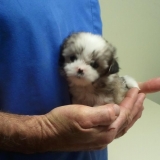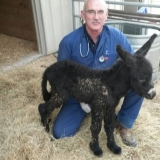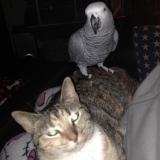Genetics 1
Genetics I
When things don’t go right the easiest thing to do is to blame your mother. Isn’t that what mothers are for? It is even easier to just blame your genetic make-up altogether. It’s not your fault, it’s in your genes.
If pets had someone to blame for their genes, it wouldn’t be their parents, it would be their breeders. Many breeders have a faulty understanding of genetics and that can cause many problems for the animals and the people who purchase them.
Animals are either purposefully bred; pure breeds and designer breeds or randomly bred, also called mutts or cross breds.
Understanding genetics and genetic diseases can help people select thoughtfully from these two types of breeding. The hallmark of genetic disease is the ability to predict it prior to its onset; enabling us to prevent or lessen it’s impact. The highest frequency genetic disorders occur across all mixed-breed and pure breed dogs and cats.
Genetic mutations can be broadly categorized in two ways. Some genetic mutations are so old that they occur uniformly across all dogs or cats. Some mutations are more recent, and are limited to only a few breeds, or a single breed. This is why some cross breeds can have genetic disease. Genetic disease is not limited to pure breed animals.
A word on responsible breeders. Responsible breeders will have their breeding animals tested for the genetic diseases that occur commonly in their breed. There are several online data bases that can be used to verify this testing. Failure to do this testing is irresponsible breeding.
Your veterinarian should be acquainted with breed specific hereditary disorders, their modes of inheritance, and available genetic tests. This information will help you select a pet that will start out in life as healthy as possible. If you already have a pet with a breed history of genetic disorders, appropriate genetic testing will allow you to keep the animal as healthy as possible.
Genetic testing is available in many forms. There are tests for specific mutations such as collie eye in dogs or HYPP in horses. There are also genetic tests to determine the breeds that make up your dog.
Genetics is a large and complex subject. In the Genetics II article we will look at some of the clinical truths about pure breeds, mixed breeds and designer breeds. A thank you is in order to Dr. Jerold Bell for the information used to put this article together.














